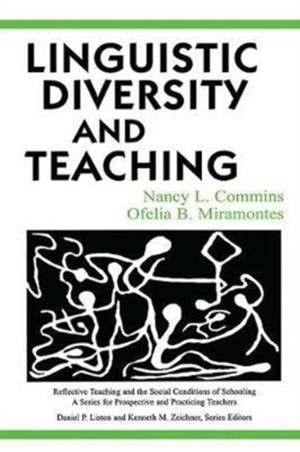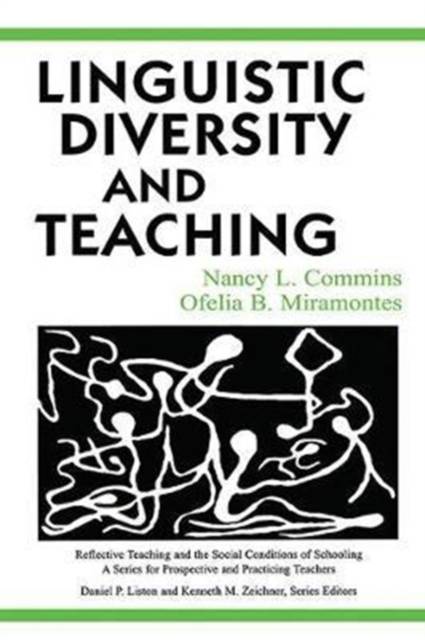
- Afhalen na 1 uur in een winkel met voorraad
- Gratis thuislevering in België vanaf € 30
- Ruim aanbod met 7 miljoen producten
- Afhalen na 1 uur in een winkel met voorraad
- Gratis thuislevering in België vanaf € 30
- Ruim aanbod met 7 miljoen producten
Zoeken
Omschrijving
Linguistic Diversity and Teaching raises questions and provides a context for reflection regarding the complex issues surrounding new English learners in the schools. These issues exist within a highly charged political climate and involve not only language, but also culture, class, ethnicity, and the persistent inequities that characterize our educational system. The text addresses these issues through conversations among experts, practitioners, and readers that are informed by representative case studies and by a range of theoretical approaches. It is designed to engage readers in beginning to evolve their own practical theories, to help them explore and perhaps modify some basic beliefs and assumptions, and to become acquainted with other points of view. Throughout, readers are encouraged to interact with the text and to develop their own perspective on the issue of linguistic diversity and teaching. This is the fourth volume in Reflective Teaching and the Social Conditions of Schooling: A Series for Prospective and Practicing Teachers, edited by Daniel P. Liston and Kenneth M. Zeichner. It follows the same format as previous volumes in the series.Part I includes four cases dealing with different aspects of the impacts of the changing demographics of public schools. Each case is followed by space for readers to write their own reactions and reflections, and a set of reactions to the cases written by prospective and practicing teachers, administrators, and professors. Part II presents three public arguments representing very different views about linguistic diversity: in public schools, English should be the only language of instruction; all children should receive instruction in both their first language and English; planning for instruction should be based not on absolutes, but on what is realistically possible in particular settings.Part III offers the authors' own interpretations of the issues raised throughout the text, outlin
Specificaties
Betrokkenen
- Auteur(s):
- Uitgeverij:
Inhoud
- Aantal bladzijden:
- 206
- Taal:
- Engels
- Reeks:
Eigenschappen
- Productcode (EAN):
- 9781138406865
- Verschijningsdatum:
- 3/07/2017
- Uitvoering:
- Hardcover
- Formaat:
- Genaaid
- Afmetingen:
- 152 mm x 229 mm
- Gewicht:
- 452 g

Alleen bij Standaard Boekhandel
+ 513 punten op je klantenkaart van Standaard Boekhandel
Beoordelingen
We publiceren alleen reviews die voldoen aan de voorwaarden voor reviews. Bekijk onze voorwaarden voor reviews.











